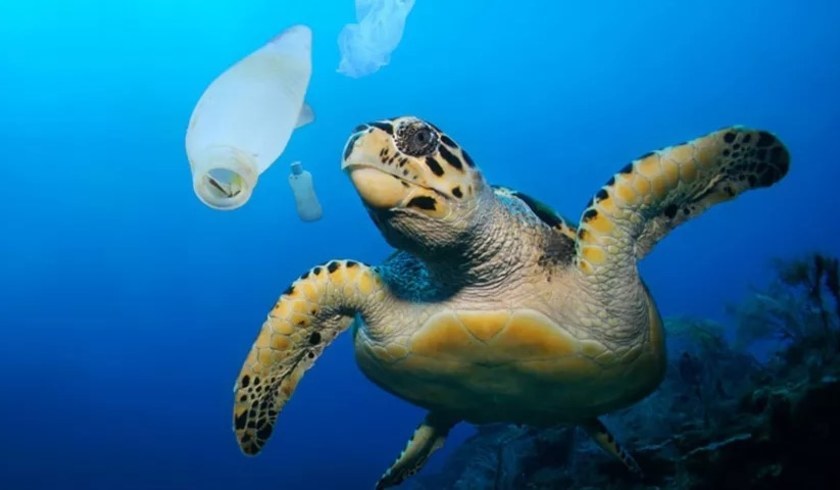07/06/2019
It's no question that oceans are vital to all life on Earth. But despite knowing this we have been abusing them for decades, through oil spills, toxic waste, plastic waste and more[4]. Every year, over 12.7 million tonnes of plastic are dumped in the ocean[5], leading to the prediction that by 2050 they will contain more plastic by weight than fish.
Currently plastic makes up 90% of marine litter[6], and when dumped in the ocean it doesn’t biodegrade but instead breaks down into microplastics. We are now at a stage where if we measured the sea, from the very top to the very bottom, worldwide there would be an estimated 51 trillion pieces of plastic inhabiting it[7]. This presents a serious health risk to all marine life who mistake it for food – causing all kinds of problems from cancer to immune system damage[8].
8th June is World Oceans Day, a chance for us to correct the damage that we have been causing the oceans that cover so much of our planet. Just a few small changes can make the biggest difference, and what better way to start than by replacing plastics with reusable alternatives.
Carrying a reusable water bottle is a great way to start as it saves hundreds of single-use plastic bottles from entering the sea every year, reducing ocean pollution dramatically. The switch will also benefit you in terms of health, convenience and cost – with regular use of a reusable bottle saving an average of £25,000 across a lifetime[9].
At Zip Water, we provide innovative products to enable you to refill your reusable bottle with clean, safe and pure tasting drinking water. Using state-of-the-art filtration technology, we offer the widest range of drinking water systems on the market, whether catering for a small or large environment. Each of our drinking water solutions offer a sustainability promise, housing the latest in advanced energy-efficient technology while eliminating the need for single-use plastic water bottle waste.
To find out more about our products and sustainability promise please contact us here. Alternatively you can explore our product ranges.
[1] https://www.nationalgeographic.com/environment/habitats/ocean/
[2] https://www.nationalgeographic.com/environment/habitats/ocean/
[3] http://www.marinespecies.org/
[4] https://www.conserve-energy-future.com/various-ocean-pollution-facts.php
[5] https://ourblueplanet.bbcearth.com/blog/?article=why-do-marine-animals-eat-plastic
[6] https://www.herplanetearth.com/reduce-plastic-waste.html
[7] https://www.biologicaldiversity.org/campaigns/ocean_plastics/
[8] https://www.conserve-energy-future.com/various-ocean-pollution-facts.php
[9] http://www.tapwater.org/faqs
Talk to us about your next project, request a brochure or arrange a full product demo with one of our team.
